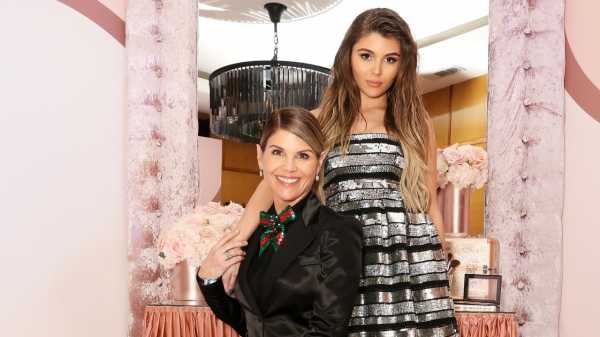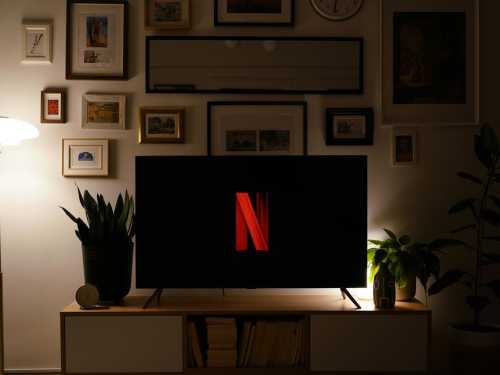
On Monday night, HBO will air Alex Gibney’s investigative documentary “The Inventor: Out for Blood in Silicon Valley.” The film, which will also be released in theatres, focusses on the health-care startup Theranos and its founder and C.E.O., Elizabeth Holmes, who, for more than a decade, defrauded investors, board members, and the public, when she falsely claimed that her company’s blood-testing technology—largely nonexistent, it turned out—would revolutionize the medical industry. With her spookily unblinking blue eyes, sonorous, apparently fake baritone, and uniform of Steve Jobs-like black turtlenecks, Holmes is the kind of character whose rise-and-fall story is made especially riveting by her eccentricities, and Gibney’s splashy documentary is widely anticipated. “9 day countdown for the Theranos documentary,” a friend posted on Twitter, on Sunday, followed by a series of emojis, including a bloody syringe and a heart-eyed face. Two days later, the same friend tweeted, “Elizabeth Holmes is pissed she didn’t think of this college admissions scam first.”
As my colleague Jia Tolentino wrote last June—after the publication of “Bad Blood,” John Carreyrou’s book about the Holmes affair—grifter season comes irregularly but often in America. Its recurring arrival is marked by the appearance of fraudsters whose flagrant dishonesty captures the public imagination. Their stories allow us to vicariously live out our worst urges, but they also present us with open-and-shut arcs that show crime doesn’t pay (in a world that, more often than not, suggests that it does). Our hunger for scam stories has lately seemed endless. In the past twelve months, we’ve had not only Holmes but also Anna Delvey, the young Russian woman who scammed her way through New York’s trendy and moneyed downtown circles, and Billy McFarland, the bro-ish entrepreneur whose Fyre Fest fraud held so much public fascination that it was portrayed in not one but two documentaries this winter. The latest scandal—the one that my friend was tweeting about—emerged on Tuesday, almost as if it were timed to serve as part of a viral-marketing strategy leading up to the Gibney documentary. (The tagline, if there was one, might have been, “You like scams, remember?”)
This time, the target in question wasn’t health care, but college admissions. In a government investigation that began in 2011, and went by the appealingly retro name “Operation Varsity Blues,” more than thirty wealthy parents were charged with buying entry to a series of more-or-less selective schools for their academically middling children. Among the parents were C.E.O.s, a top lawyer, finance bigwigs, and even two Hollywood actors: Felicity Huffman, of the mid-two-thousands nighttime soap “Desperate Housewives”; and Lori Loughlin, of the popular nineties sitcom “Full House.” (Many of the parents have not yet entered pleas.) The people involved weren’t odd birds, like Holmes, nor did they cloak their scamming, as she did, in lofty talk about the good of humanity. But, like the Theranos hoaxster, they were plenty wealthy, and appeared very comfortable with lying without compunction to get their way, and with throwing around hundreds of thousands of dollars in their quest to buy status. They were immediately fascinating characters to me: vulgar, entitled, and un-self-aware, they seemed to embody the latest version of the showy American id, not unlike Bravo’s Real Housewives, or the Kardashians, or, for that matter, the Trump family.
Along with the indictment, the Department of Justice released a two-hundred-and-four-page affidavit, which contains the facts pertaining to the criminal complaint, including detailed records of communications between the accused parents and William Singer, who ran the scheme. As the owner of a college-admissions-consulting business in moneyed Newport Beach, California, Singer provided his clients with proctors and test administrators who helped falsify their usually unsuspecting children’s SAT and ACT scores, and he bribed college officials to recommend that prospective students be admitted to their institutions as athletes, even though they were nothing of the sort. In 2018, Singer became a witness for the government, and agreed to wear a wire; many of the conversations that are documented in the affidavit were recorded with his knowledge, after he was turned. (He is referred to in the document as “CW-1,” or “Cooperating Witness 1.”)
As I read the documents, I wondered why perusing the minute interactions between Singer and his clients gave me so much pleasure. The people whose words are in the affidavit—save for Singer, post-flip—thought they were doing something that would remain private. Part of what I was experiencing was the slightly gross excitement one feels when sneakily reading a diary: fulfilling the prurient fantasy of observing people behaving despicably, as they really are. But what captured my attention even more was the sheer everydayness of the documented conversations, whose polite blandness, in the context of their apparent criminality, often led to high comedy. In one moment, Loughlin expresses her happiness at her younger daughter’s fraudulent acceptance at the University of Southern California by texting Singer a high-five emoji. (Loughlin and her husband, the designer Mossimo Giannulli, allegedly paid Singer half a million dollars to help recruit their two daughters to U.S.C. as crew coxswains, though it is doubtful whether either had ever set foot in a rowboat.) Elsewhere, Huffman responds “aw” when Singer tells her that the crooked proctor who allegedly took the SATs for one of her daughters, in exchange for fifteen thousand dollars, had just had a baby; in another e-mail, she notifies Singer of a possible snag to the scheme, and writes, “Ruh Ro!” A marketing C.E.O. provides Singer with a spidery handwriting sample from her son so that a proctor can ape it on the ACT, writing, dryly, “Good luck with this.” At one point, Singer has the face of a client’s child crudely Photoshopped onto the body of a football player to convince an admissions committee that he is a worthy recruit. (He doesn’t even play the sport.) When Singer tells two other clients—one an impact investor at a private-equity firm, the other a casino-industry executive—of some of the finer tricks of his scheme, they respond, repetitively, “I love it.”
For years, it’s been known that the college-admissions process itself a kind of scam. In his book “The Price of Admission,” from 2006, the investigative journalist Daniel Golden reveals the ways in which wealthy parents secure their children’s acceptance to prestigious colleges through hefty donations. In one example, he describes how Charles and Seryl Kushner used a two-and-a-half-million-dollar donation to obtain an admission to Harvard for their son, Jared, who is now the President’s son-in-law. (The Kushners have denied that the gift was related to Jared’s admission.) In an interview with my colleague Isaac Chotiner, on Tuesday, Golden noted that, although participating in allegedly criminal activities, the parents involved in the current scandal were simply pushing an already corrupt system to its logical conclusion. There is no doubt of the continuity between the two types of admission schemes, and that the technically legal one isn’t any more ethical than the other.
This week’s exposure of the college-admissions scam is significant exactly because, in its trite ordinariness, it makes granular and concrete what is usually abstract and difficult to pin down. The parents who responded “I love it” to Singer’s criminal propositions reminded me, viscerally, of Donald Trump, Jr.,’s breezy e-mail reply when, in 2016, he was told of a Russian source’s ability to share dirt on Hillary Clinton: “If it’s what you say I love it.” When the e-mail was revealed, in 2017, I felt a similar satisfaction. In both cases, casual corruption, usually obscured by several layers of secrecy and legal trickery, was finally laid bare. The people involved were so self-satisfied and secure in their power that they greeted unethical, perhaps felonious proposals with complete nonchalance.
A memorable passage in Carreyrou’s “Bad Blood” describes how Tyler Shultz, a young employee at Theranos who ended up being one of the whistleblowers who brought down the company, finally gets to see what is inside the company’s newfangled Edison device—touted by Holmes as a miracle machine that will transform blood testing:
The device seemed to consist of nothing more than a pipette fastened
to a robotic arm that moved back and forth on a gantry. [Shultz and a
colleague] had envisioned some sort of sophisticated microfluidic
system. But this seemed like something a middle-schooler could build
in his garage.
What’s inside the sleek machine is ugly and dumb and workaday. But the moment that the façade is torn away from what lies beneath is also the moment that, one hopes, real change can begin.
Sourse: newyorker.com






